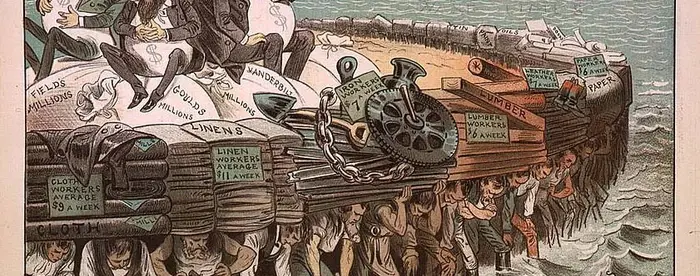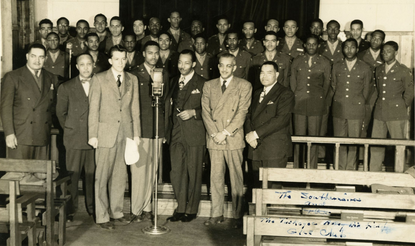This History U course examines the trajectory of capitalism from its emergence in British North America to the erosion of US global competitiveness in the 1970s and the rise of neoliberalism and financialization since the 1980s.
Course Instructor: Professor David Sicilia, University of Maryland
Eligibility: High school students
Image Source: Bernhard Gillam, "The Protectors of Our Industries," Puck, February 7, 1883 (Library of Congress, Prints and Photographs Divison, 94507245)



